
UNPLUGGED
MY JOURNEY INTO THE DARK WORLD OF VIDEO GAME ADDICTION
RYAN G. VAN CLEAVE, PH.D.

www.hcibooks.com
Library of Congress Cataloging-in-Publication Data
Van Cleave, Ryan G., 1972-
Unplugged : my journey into the dark world of video game addiction / Ryan G. Van Cleave.
p. cm.
eISBN-13: 978-0-7573-9364-8 eISBN-10: 0-7573-9364-0
1. Video game addiction. 2. Video gamesPsychological aspects. I. Title.
RC569.5.V53V36 2010
616.85'84dc22
2010011264
2010 Ryan G. Van Cleave
All rights reserved. Printed in the United States of America. No part of this publication may be reproduced, stored in a retrieval system, or transmitted in any form or by any means, electronic, mechanical, photocopying, recording, or otherwise, without the written permission of the publisher.
HCI, its logos and marks are trademarks of Health Communications, Inc.
Publisher: Health Communications, Inc.
3201 S.W. 15th Street
Deerfield Beach, FL 334428190
Cover design by Larissa Hise Henoch
Interior design by Lawna Patterson Oldfield
Interior formatting by Dawn Von Strolley Grove
Contents
by Dr. Mark Griffiths
Space Invaders proved so
addictive that it not only inaugurated
an entire video game paradigm,
it caused a nationwide coin
shortage in Japan.
CHRIS GREEN
You know youre a serious
World of Warcraft player when the
game starts interfering with your life.
You know youre an addict when
your life starts interfering
with the game.
ANONYMOUS
Certain individuals use certain substances
in certain ways, thought at certain times to
be unacceptable by certain other individuals
for reasons both certain and uncertain.
MILTON BURGLASS AND HOWARD SHAFFER, 1984
The definition of what constitutes addiction has been a matter of great debate for decades. And its why I will have a job for life. Addiction means different things to different people, but for many, the concept of addiction involves taking drugs. Therefore, most official definitions concentrate on the ingestion of a substance. This book challenges that traditional view.
Ryan Van Cleaves confessional and sometimes self-deprecating story of his own addiction to the online game World of Warcraft will take you on an emotional roller-coaster ride. This open and honest account of Ryans descent into the darkest side of the digital world may make you laugh, cry, and disbelievebut whatever your reaction, you wont forget. The book conjures up wonderful imagery that many of us will empathize with. (Like Ryan, I am a published poet who, in the 1980s, viewed university as a place to play video games, chase girls, and play guitar. However, unlike Ryan, I was able to focus on what was most important!)
Research into online gaming addiction is a relatively new area of psychological study. I have studied behavioral addictions for twenty-three years, and I published my first academic paper on video-game addiction back in 1991. More recently, I have spent a great deal of time researching the excessive playing of online games like Everquest (known colloquially by many of its users as Evercrack). Similarly, Ryan refers to World of Warcraft as World of Warcrack. He also describes WoW as digital heroin. This is not only emotive but also puts into two words what his experience with World of Warcraft was all about.
How could something so innocuous as an online game compromise everything in his life? Whats more, how could it take a man to the brink of suicide? Despite the traditional idea that addictions are usually about drugs, there is now a growing scientific movement that views a number of behaviors as potentially addictive. These so-called behavioral addictions include gambling, overeating, sex, exercise, video-game playing, love, work, and Internet use. Such diversity has led to new, all-encompassing definitions of what constitutes an addictive behavior. One definition published in the Annual Review of Psychology defines addictive behavior as:
A repetitive habit pattern that increases the risk of disease and/or associated personal and social problems. Addictive behaviors are often experienced subjectively as loss of control the behavior contrives to occur despite volitional attempts to abstain or moderate use. These habit patterns are typically characterized by immediate gratification (short term reward), often coupled with delayed deleterious effects (long term costs). Attempts to change an addictive behavior (via treatment or self initiation) are typically marked with high relapse rates.
In my research, I view addictive behavior as any action that features what I believe are the six core components of addiction (salience, mood modification, tolerance, withdrawal symptoms, conflict, and relapse). I have consistently argued that any behavior that fulfills these six criteria can be operationally defined as an addiction. In the case of online gaming addiction, these would be:
Salience. This occurs when online gaming becomes the most important activity in the persons life and dominates thinking (preoccupations and cognitive distortions), feelings (cravings), and behavior (deterioration of socialized behavior). For instance, even if the person is not actually gaming online, he/she will be thinking about and planning for the next session.
Mood modification. These are the subjective experiences that people report as a consequence of engaging in online gaming and can be seen as a coping strategy (i.e., they experience an arousing buzz or a high or paradoxically tranquilizing feel of escape or numbing).
Tolerance. Increasing amounts of online gaming are required to achieve the former mood-modifying effects. For someone engaged in online gaming, this means a gradual build up of the amount of the time spent online, engaged in the behavior.
Withdrawal symptoms. Unpleasant feeling states and/or physical effects that occur when online gaming is discontinued or suddenly reduced (e.g., the shakes, moodiness, irritability, etc.).
Conflict. Conflicts between the online gamer and those around him (interpersonal conflict), conflicts with other activities (job, schoolwork, social life, hobbies, and interests) or from within the individual him-or herself (intrapsychic conflict and/or subjective feelings of loss of control), which are concerned with spending too much time engaged in online gaming.
Relapse. Repeated reversions to earlier patterns of online gaming. Patterns typical of the height of excessive online gaming are quickly restored after periods of abstinence or control.
Once youve read this book, youll realize that Ryans obsession met these criteria and that he was addicted to World of Warcraft in the same way that other people are addicted to alcohol and other drugs. His unadulterated first-person account gets to the heart of what it is to be addicted. He compromised everything in his life to play a game, putting things off until tomorrow so [he] could enjoy the enjoyment of now.
One of the reasons I got into this line of research was my own experience with gaming, which echoes some of Ryans early experiences. Ryan talks of his introduction to playing video games on a Commodore 64 and his obsession with Tetris. When I was fourteen years old, I would spend all day every day during the school holidays playing
Next page
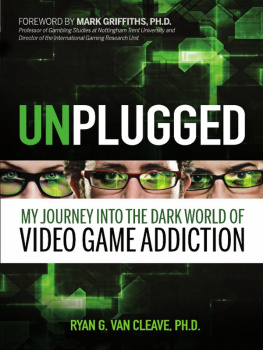
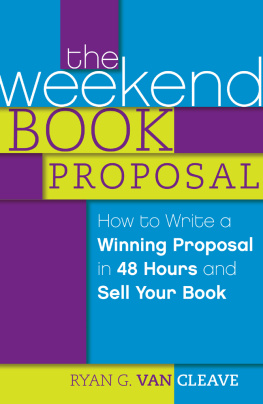
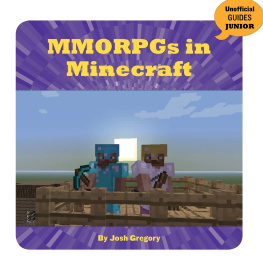
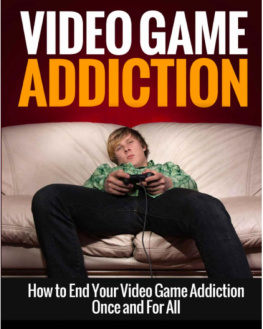
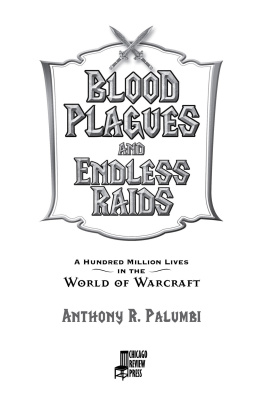

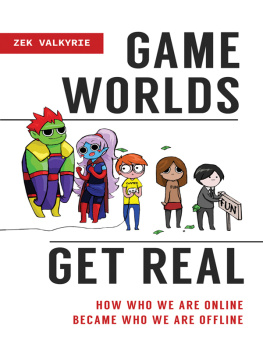
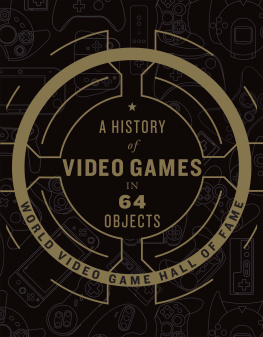
![Paul Emmerich [Paul Emmerich] - Beginning Lua with World of Warcraft Addons](/uploads/posts/book/124115/thumbs/paul-emmerich-paul-emmerich-beginning-lua-with.jpg)



